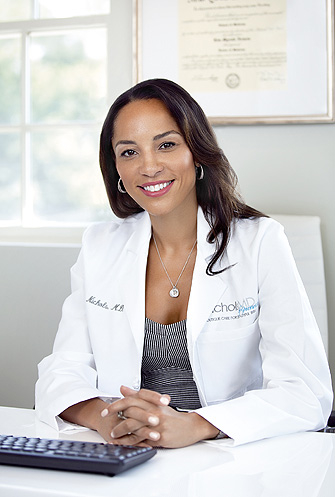
March 20, 2014 4:06 pm Dr. Kim Nichols on Teenage Acne

Teenage skin
I have always liked treating teenage patients. I think it’s because I think I can really make a difference with them. Catching kids early can put them on a path for taking good care of their skin for a lifetime. This also involves educating their parents. Many parents are at a loss about how to help their kids with their acne and other skin issues. They may have had skin problems themselves when they were teenagers, and now they feel terrible seeing their kids go through the same issues and loss of self-esteem. So I have put together some common questions that teenagers and their parents ask me, especially concerning the dreaded problem of teenager acne.
1) Is teenage acne hereditary? And if so, why is it worse in some kids than others?
Yes, acne is often hereditary. Studies have shown that if a child has parents who had acne (especially a mother) than they have a greater chance of having acne as a teenager. And the more people in a child’s family who had acne, the greater chance he or she may have acne to some degree. However, there are many teenagers who have parents who never had acne. This is because there are a number of other factors that contribute to acne beyond genetics. These include hormonal levels, the use of occlusive cosmetics and skin care products, inappropriate skin care regimens, and mechanical or frictional irritation, to name a few. Consequently, there is a lot of variation in how teenagers manifest acne, and this explains why some kids have it worse than others.
2) At what age should I start taking my teenager to the dermatologist? At what ages is acne usually the worst for teenagers?
You should start taking your teenager to the dermatologist when his or her acne becomes a daily issue, regardless of the severity. The age at which this occurs can vary. I advise parents to bring their teenagers in for an initial evaluation with me before the acne gets bad. This is because I want to get their kids on the appropriate regimens right away, before they experiment with the 100s of acne products out there on the market, which, in many cases, can irritate their skin and worsen their acne. These days, we do not advise parents to just let their teenagers’ acne run its course. Without appropriate intervention, kids may be left with scars and hyperpigmentation that could have been avoided.
Acne affects 85% of all teenagers to some degree. It typically begins at puberty between the ages of 8 and 12 and is often one of the first signs of increased hormone production. The worst acne is seen in both girls and boys between the ages of 15 -18. And in most cases it will resolve by age 25. However, due to hormonal fluctuations each month, many women will continue to have hormonal acne as adults.
3) What’s a quick and easy way for teenagers to keep their faces clean? What if it’s Friday night and they are heading out and an ugly zit comes up – is it okay to pop it – just this once? What’s the right way to do it?
I know teenagers are super busy these days so I always recommend regimens that are quick and easy to stick to. In terms of cleansers, I have them use a gentle cleanser twice per day. Then, if they are particularly oily, a gentle alcohol-free toner. If they are involved in sports or exercise, I also recommend that they bring cleansing pads to the gym and clean their faces in their locker rooms. This way, even if they don’t get a chance to shower until they’ve gotten home, the sweat and oil is not sitting on their faces for hours.
If you must pop an ugly pimple before an event, use some gauze pads and with the pads of your fingers, gently pop it with as little pressure as possible. Do not use your fingernails as this can cause you to excoriate the adjacent skin, opening up a wound that could become infected.
4) Is there any miracle cure to acne?
There are no miracle cures for acne. However, there are a number of highly effective skin care products and medications that can control acne very well. Teenagers and their parents should discuss the different options with their dermatologists.
5) Does stress, lack of sleep, and poor diet – all things that teenagers are particularly known to suffer from – cause skin problems?
Yes. Numerous studies have shown that stress and lack of sleep affects cortisol and other hormone levels, which can lead to acne breakouts. In addition, it’s been shown that high glycemic carbohydrates (which are the main staple of most teenagers’ diets) are the primary dietary trigger of acne, folliculitis (body acne) and seborrheic dermatitis (dandruff).
6) We all know that tanning booths are bad – but it seems to clear up a teen’s skin – is there some safe way to get solar exposure? Isn’t that why their skin is better in the summer time?
This is actually a very common misconception. A tan may mask pimples in some fair-skinned people; however, in medium to darker-skinned people, tanning can often hyperpigment acne, making it appear even worse. And in everyone tanning can actually exacerbate acne. This is because the oils and creams that are used in the tanning and post-tanning process occlude the pores, causing even more breakouts. Yet another reason for teenagers to avoid tanning booths entirely!
Phone – 203-862-4000

